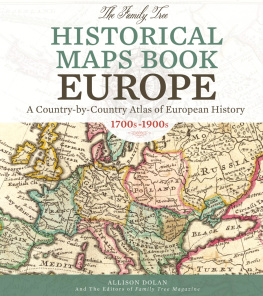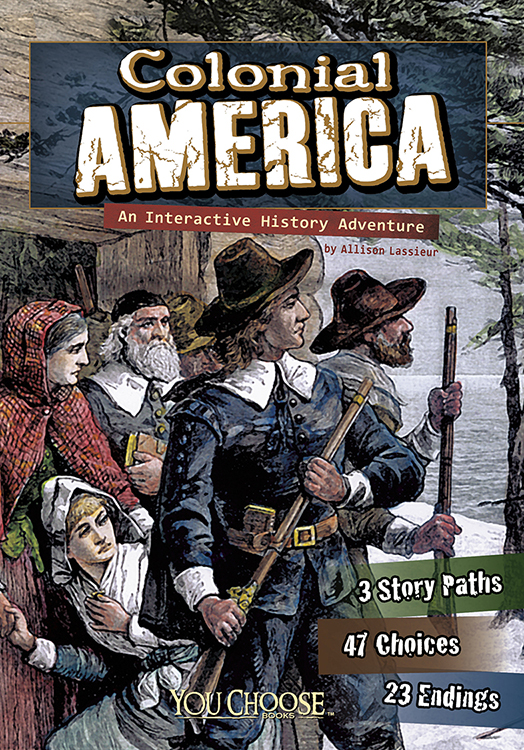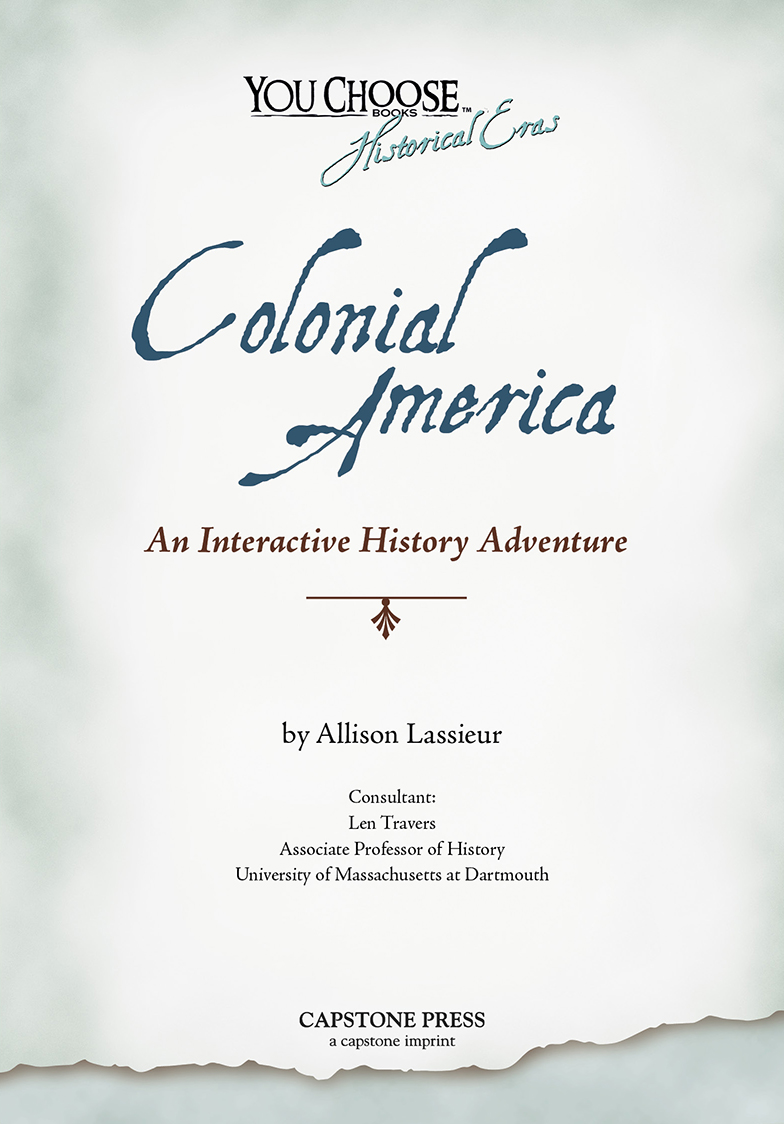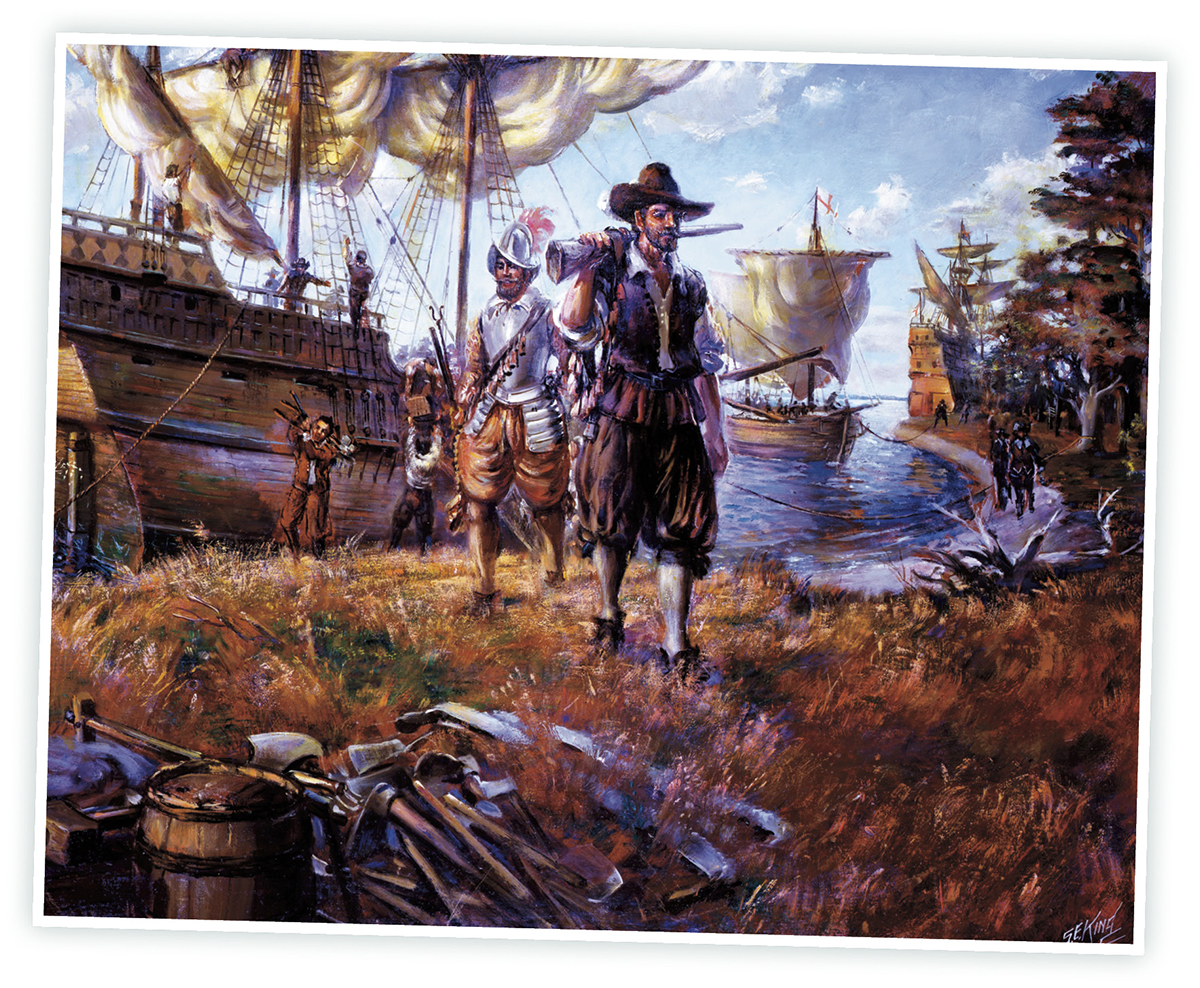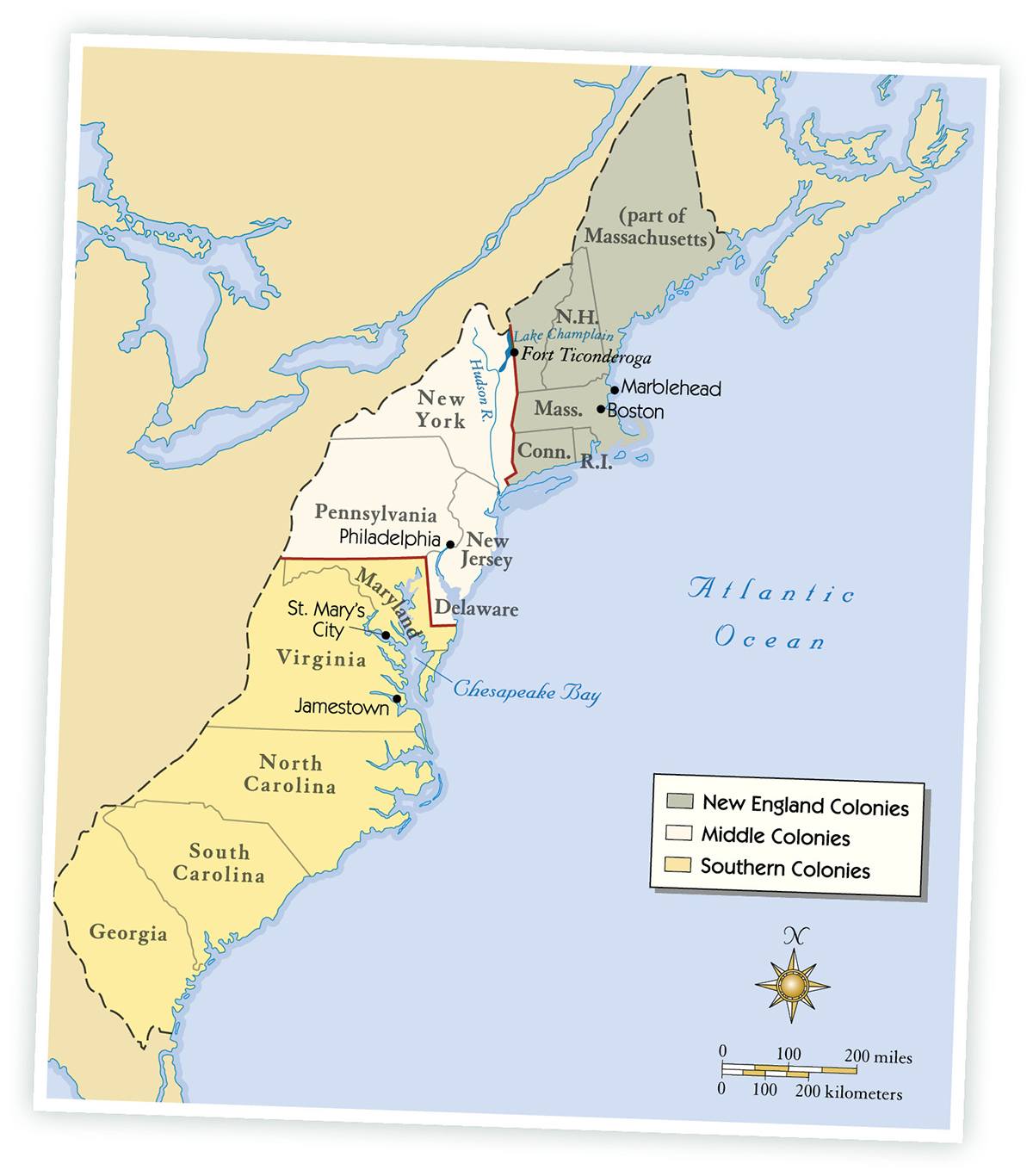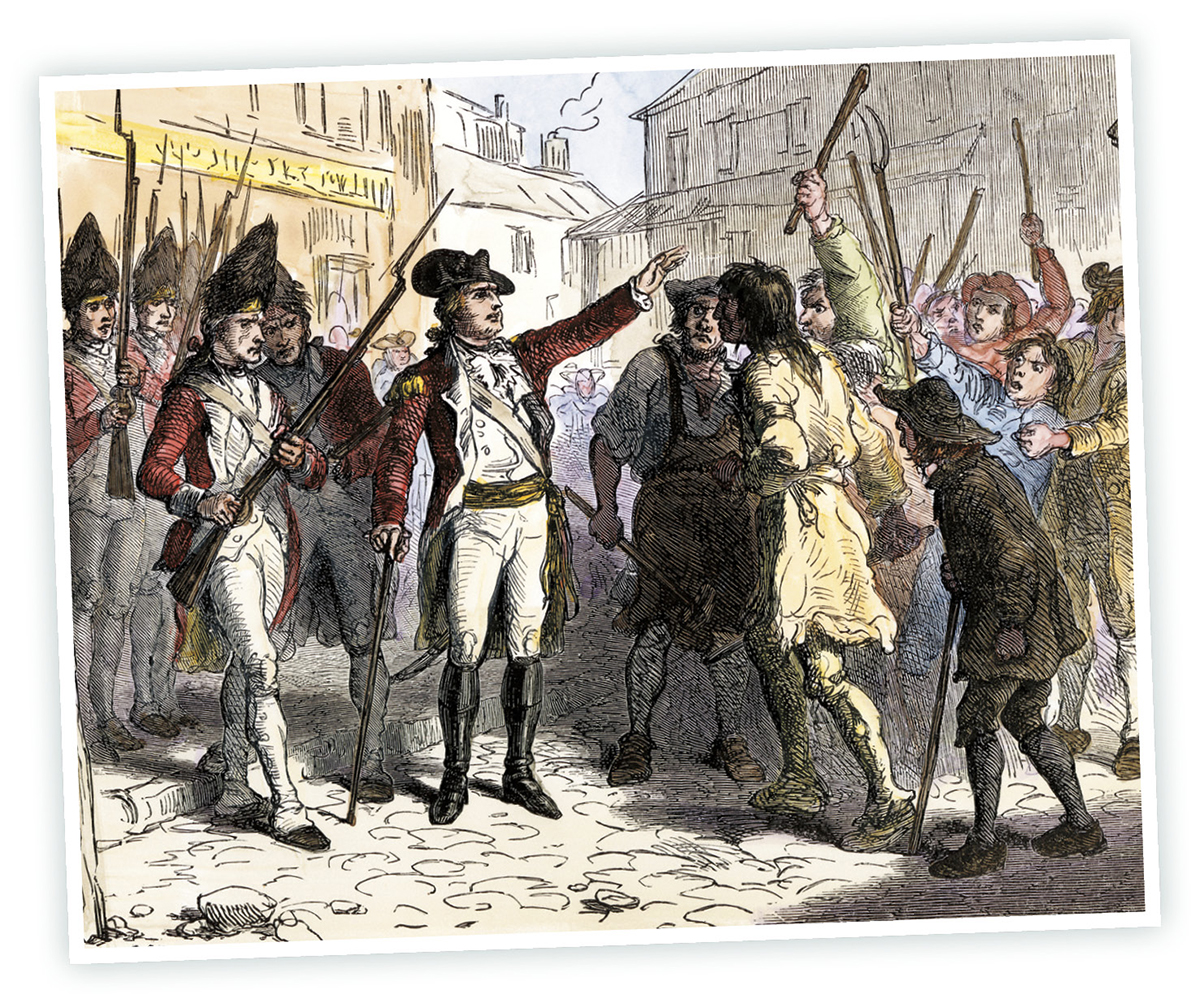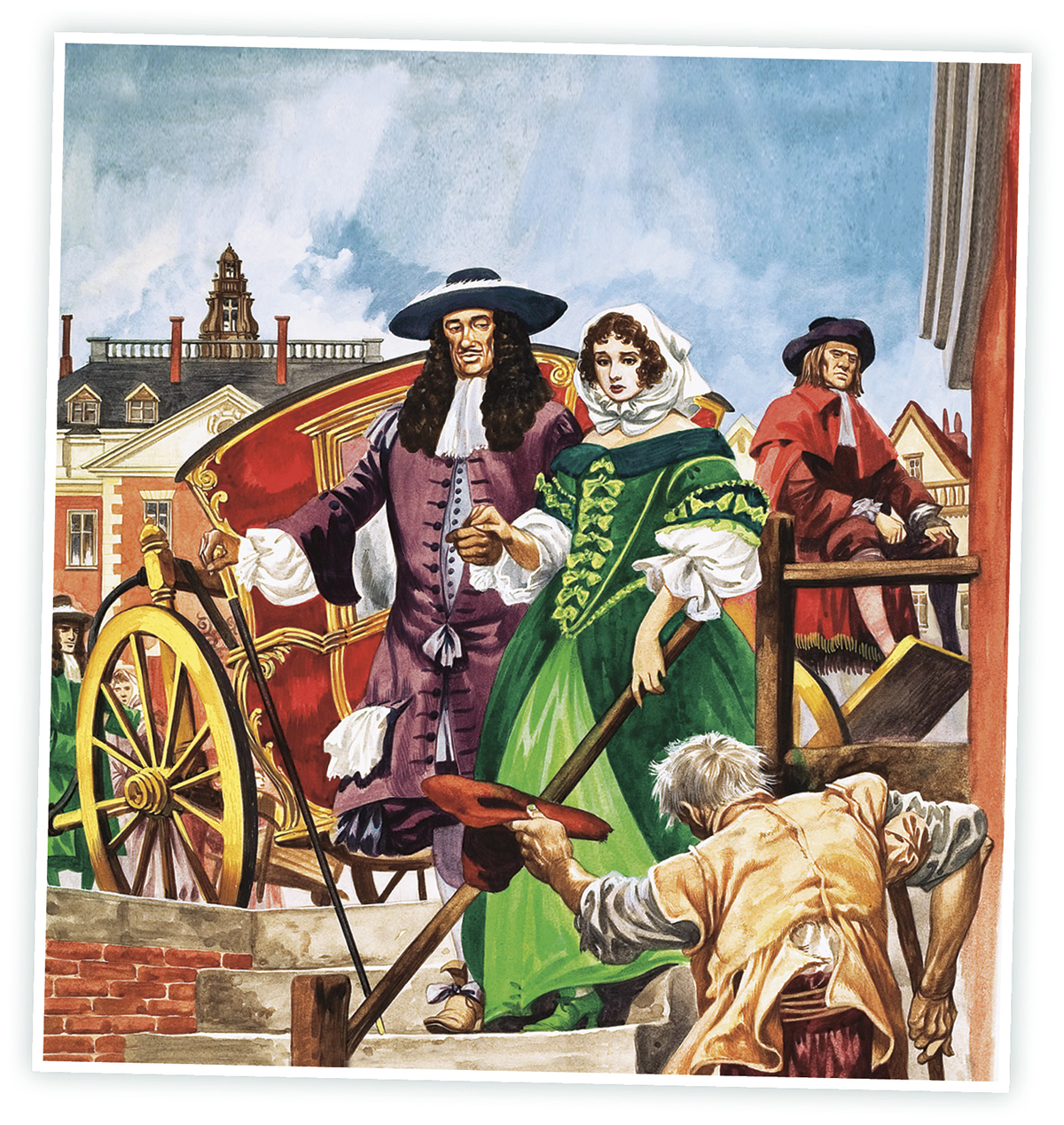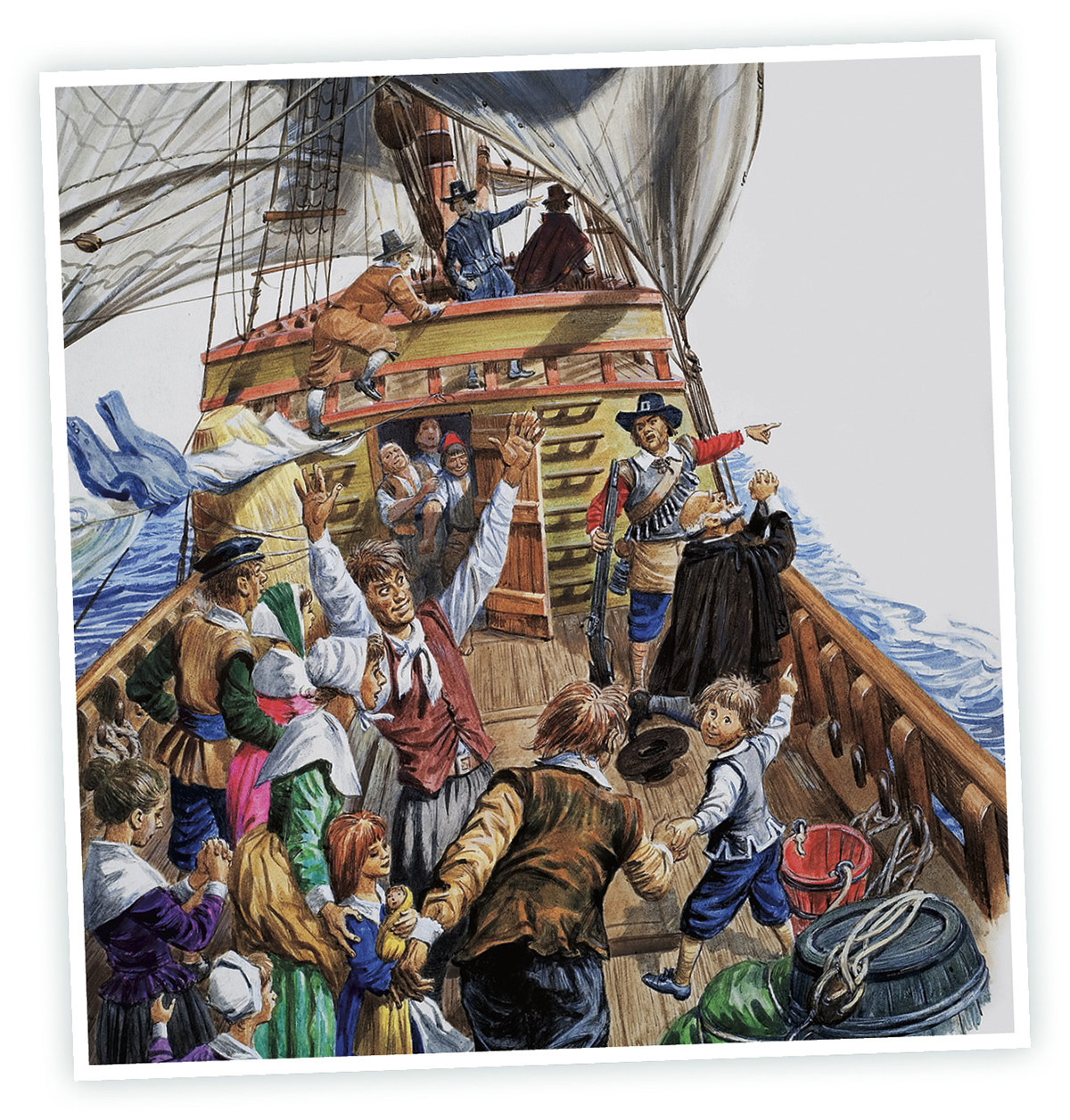For the best You Choose experience,
view in portrait (vertical) orientation.
ABOUT YOUR ADVENTURE
YOU are living in America during colonial times. Thousands of people have left Europe to settle the vast lands in North America. Will they stay loyal to their home countries, or will they break away to form a country of their own?
In this book youll explore how the choices people made meant the difference between life and death. The events youll experience happened to real people.
Chapter One sets the scene. Then you choose which path to read. Follow the links at the bottom of each page as you read the stories. The decisions you make will change your outcome. After you finish one path, go back and read the others for new perspectives and more adventures. Use your device's back buttons or page navigation to jump back to your last choice.
YOU CHOOSE the path you take through history.
CHAPTER 1
A Time of Change
Ever since the first settlers landed in Virginia in 1607, the American colonies have been a part of Great Britain. Most people came to the colonies from Europe in search of better lives. Some came to the colonies to start businesses or farms. Others came as servants for wealthy people who paid for their trip across the Atlantic. Still others werent there by choice. They were kidnapped in Africa and brought to the colonies as slaves.
Colonists landed in Jamestown, Virginia, in 1607.
The colonies grew quickly. There were three main areasthe southern colonies, the middle colonies, and the New England colonies.
In the southern colonies, the warm climate and good soil allowed people to build large plantations and farms. They raised tobacco, cotton, and rice. In the middle colonies, farmers grew wheat, and industries such as shipbuilding and ironworks began. The soil in the New England colonies was too rocky for large farms, but rich forests provided timber and furs. The oceans near New England teemed with fish. Towns such as Boston and Philadelphia grew to cities of thousands of people.
In the 1700s the British fought several wars in the colonies, including the French and Indian War. Most colonists were still loyal to Britain and gladly fought in the British Army. These wars were expensive, though. The British Parliament began to tax the colonies to raise money.
Many colonists were upset about paying taxes to the British.
Many colonists thought the new taxes were unfair. They believed they should have some say in Britains government if they were expected to pay British taxes. But the British didnt want to give the colonies more freedom. By the late 1700s, the colonies had enough. They began to fight back.
What will your experience in colonial America be like?
CHAPTER 2
A New Life in the Colonies
Its early afternoon in London, England. You stumble down the narrow cobblestone streets that stink of garbage and human waste. Its 1645, and like thousands of other people in England, youre out of work. But no one is hiring right now.
You reach into your pocket and feel the coins there. Not many left. You see the open door of a coaching inn called The George. At coaching inns drivers and others can get a cheap, hot meal. The place is empty except for a large man behind the bar.
The streets of London were full of beggars in the mid-1600s.
Looking for work, miss? the man says, kindly handing you a crust of bread and mug of ale. You nod, your mouth full.
Your best chance is to go to the colonies, the man says. Theres work there and land and riches for anyone willing to work hard.
People became indentured servants to pay their ship fare to the colonies.
I wish I could, but I cant afford the ship fare, you reply.
You can agree to work as an indentured servant in exchange for the cost of your voyage, the man explains. When your term of service is done, youre free to do as you please.
That sounds too good to be true. What must I do to get passage on one of these ships?
The man replies, One way is to sign a contract with an agent. He finds servants for wealthy landowners. Or you can sign a contract with a ships captain. Hell sell your contract to someone once you reach the colonies.
The bartender tells you where to find an agent. Soon you are standing before a tall, well-dressed man.
I am Philip Smith, and Im looking for servants to go to Virginia, the man says. Do you have any skills?
Im very good with a needle, sir, you say. The man nods his head. Sign this paper. It says that in exchange for the cost of your voyage, you agree to work for four years. Youll receive room, board, and a new set of clothing once a year. When your term of service is finished, youll receive land for your dowry, a new set of clothing, and some money.
Excitedly, you sign. Smith hands you a copy of the contract. The ship leaves tomorrow at noon, he says. Dont be late.
The next morning you make your way to the docks. A sailor points out a captain whos looking for passengers to the colonies.
Im strong and I can sew well, you say.
Very well, the captain says. He hands you a paper to sign and motions for you to board his ship. Well be leaving this afternoon.
You climb aboard and find a corner in a cabin. The voyage lasts two months. By that time you are dirty and tired of sleeping in the cramped, smelly cabin. One day you see land. Youve reached Virginia!
When the ship lands, everyone spills out onto the dock. One by one the captain calls each persons name. Then he sells the persons indenture contract. When your name is called, you slowly walk forward.
This gentleman is a representative of Governor William Berkeley, the captain says, introducing a well-dressed man. The governor has need for a maid.
You agree to become a servant in the governors household. The gentleman pays the captain for your contract and tells you to follow him to a waiting wagon.
I am Charles, the man says. The governor owns a large plantation in the country. He also has a house in Jamestown. He needs a maid for both houses.
By midmorning youre already at the docks, scanning the crowds for a sign of Smith. When he sees you, he waves.



